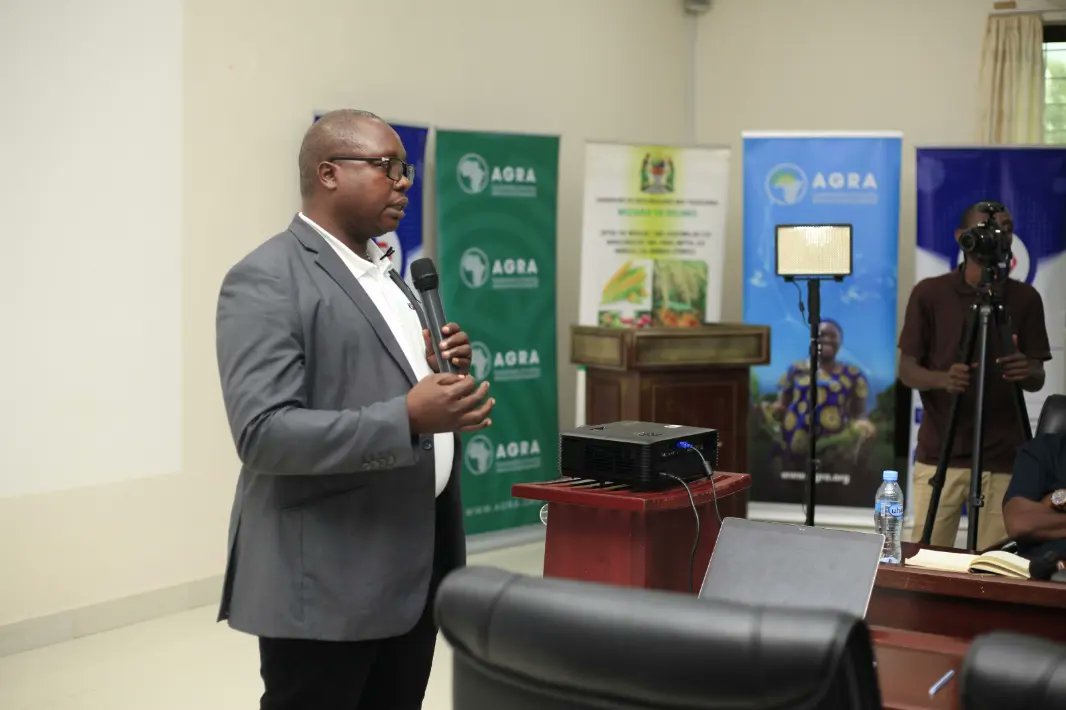
Bagamoyo, Tanzania – In a significant move to enhance the understanding of advanced seed technologies, AGRA Tanzania, in collaboration with the Tanzania Editors Forum (TEF), recently hosted a landmark training for journalists and media editors in Bagamoyo. The training, held on November 3rd and 4th, 2023, aimed at deepening media professionals’ knowledge about improved seed varieties and their crucial role in agricultural seed systems.
Empowering Journalists for Informed Reporting
The two-day intensive session, attended by approximately 45 media professionals, focused on equipping journalists with factual and detailed information about hybrid and improved seed technologies. This initiative underscores AGRA’s commitment to promoting informed and effective agricultural reporting in Tanzania.
Mr. Vianey Rweyendela, Country Director of AGRA Tanzania, highlighted the media’s pivotal role in shaping public opinion and policy. “By educating media professionals, we empower them to guide the wider community towards embracing improved agricultural practices,” he said.
A Leap Forward in Crop Variety Development
AGRA’s contributions in Tanzania have been substantial, particularly in developing new crop varieties. “With 44 new varieties of staples like maize, cassava, beans, and soybeans, and about 30 of these hitting the commercial market, we’re making tangible progress,” noted Mr. Ipyana Mwakasaka, AGRA Tanzania Program Officer – Seed Systems. However, he pointed out that the adoption rate of these improved seeds stands at a mere 20%, a gap that needs addressing for Tanzania to realize its potential as a major food producer in Africa.
Training Highlights: Dispelling Myths, Fostering Growth
The training also focused on dismantling misconceptions about hybrid seeds and their cost implications for farmers. Dr. Emmarold Mneney, a plant breeder and research scientist, stressed the importance of seed technology in relation to climate change. “It’s not just about producing seeds; it’s about ensuring their sustainability and relevance in changing climates,” he explained.
Dr. Geradina Mzena, a Plant Breeder and Molecular Geneticist, emphasized the critical role of improved seed production technology in maize farming, noting the high yield potential of hybrids.
Policy and Economic Implications
The sessions underscored the need for new, improved plant varieties to achieve food security in the face of population growth and climate change. “New varieties hold the key to better international trade and economic growth for developing countries,” added Dr. Twalib Njohole, Registrar of Plant Breeders Rights.
TOSCI: Upholding Seed Quality
Ms. Zera Mwankemwa from the Tanzania Official Seed Certification Institute (TOSCI) highlighted TOSCI’s role in ensuring seed quality. “Through stringent certification processes, we ensure farmers get high-quality seeds, crucial for better yields,” she stated.
Towards Seed Self-Sufficiency
Baldwin Shuma, CEO of Tanzania Seed Trade Association (TASTA), emphasized the importance of seed security in achieving food security. “Tanzania must reduce its reliance on imported seeds to foster a resilient agricultural future,” he said.
Training Impact: A New Perspective for Journalists
The training not only provided technical insights but also reshaped the journalists’ perspective on agriculture. Apolinary Pius Tairo, a veteran journalist, shared, “This training has expanded my knowledge significantly. I now understand the pivotal role of seeds in our agricultural sector.”
This collaborative effort by AGRA Tanzania and TEF marks a significant step in empowering journalists to contribute effectively to the nation’s agricultural narrative. As Tanzania strives to become a leading food producer in Africa, such educational programs are instrumental in ensuring the media’s role in this journey is well-informed and impactful.
AGRA (Sustainably Growing Africa’s Food Systems) is an organization dedicated to transforming agriculture in Africa by partnering with governments, private sector, and other stakeholders to develop sustainable food systems.
